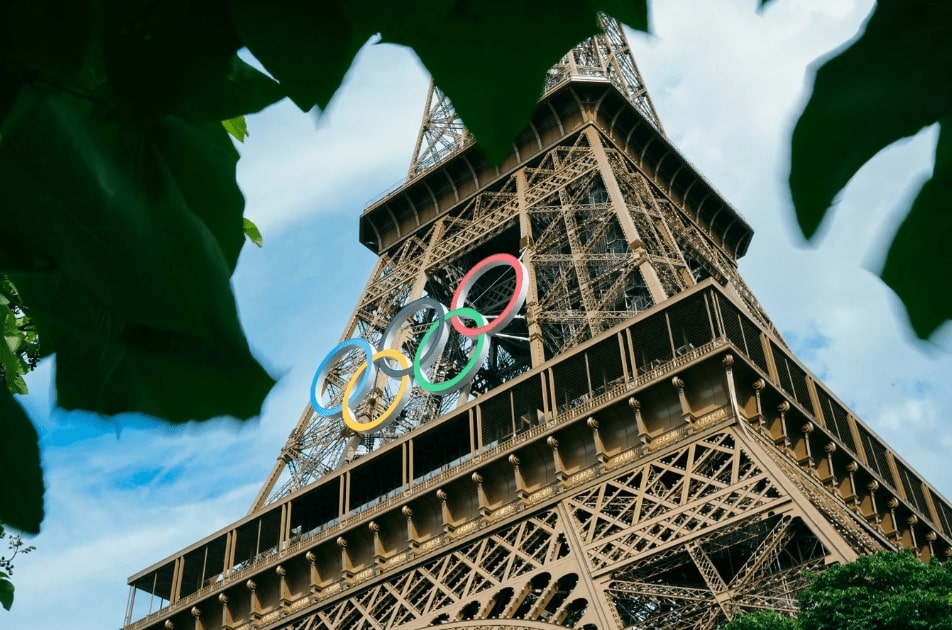
InsightThe greenest games yet? How Paris aims to halve the Olympics’ carbon footprint.
Here’s how they’re making greener changes:
100% renewable energy
All venues will be 100% powered by renewable energy generated in France, from six wind farms and two solar farms. In a first for an Olympics Games, energy partner EDF will certify that the additional energy they inject into the grid to cover the needs for the event is from renewable these sources, using blockchain technology to ensure traceability.
Not only that, but they are building novel temporary self-consumption electricity generation units including a 400m² floating mobile solar farm on the River Seine. Using its folding solar panels, it will produce electricity equivalent to the consumption of 94 Olympic and Paralympic Village apartments.
Sustainable infrastructure
Around 95% of the competition venues use existing or temporary structures. New constructions, like the Aquatics Centre, are designed with long-term community benefits in mind, featuring solar panels and energy-efficient designs. The concave shape of the Aquatic Centre’s roof enables it to reduce the volume of air to be heated by 30%, while the water in the pools will be kept at 28°C by recovering heat from the neighbouring data centre. Alongside this, photovoltaic panels installed on the roof will cover around 20% of the building’s electricity needs.
Reducing, renting and reusing
Over 80% of the venues are within 10 km of the Olympic Village and easily reachable by public transport or bike.
Sustainable catering
13 million meals will be delivered with half the carbon footprint of typical French meals. They are achieving this by sourcing 80% of the food locally, and reducing food waste and single-use plastics. They are planning to compost food, reduce animal products by 50 to 60 percent and double the amount of plant-based products on the menu.
Reports of Greenwashing
However, despite all these efforts, there are many reports of greenwashing. For example, the biggest portion of greenhouse gas emissions for major sports events – up to 85% by some estimates – comes from travel to the event by fans, journalists and athletes. Paris is planning to account for this by buying carbon offsets.
Some say that the only way the Olympics can truly be sustainable is to dramatically reduce its size, limit the number of tourists travelling by air and be fully transparent about its supply chains. Can there ever be a truly sustainable Olympic Games?
Learn more about the initiatives here:
Read more...Recent insight
Energy insight in your inbox
Subscribe to Powervault’s email newsletter and be the first to hear about new products, plus get all the latest news, analysis and insight from Powervault.


